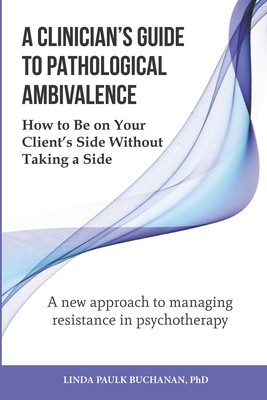
- We will send in 10–14 business days.
- Author: Linda Paulk Buchanan
- Publisher: TPI Press. the Practice Institute, LLC
- ISBN-10: 0990344568
- ISBN-13: 9780990344568
- Format: 15.2 x 22.9 x 1.2 cm, softcover
- Language: English
- SAVE -10% with code: EXTRA
A Clinician's Guide to Pathological Ambivalence (e-book) (used book) | bookbook.eu
Reviews
Description
Resistant. Oppositional. Borderline. Mental health professionals commonly use such terms to describe patients who, despite expressing a strong desire to reduce their emotional distress, repeatedly reject or ignore their therapist's interpretations andadvice. When this continues session after session, both patient and therapist end up feeling stuck and frustrated.This book offers an alternative interpretation of patients' apparent resistance, termed pathological ambivalence, which is rooted in early experience, biological functioning, and psychological narrative. The concept of pathological ambivalence draws from several established theoretical perspectives in explaining why some people seem to sabotage their progress in psychotherapy and how some therapists become unintentional enablers.
EXTRA 10 % discount with code: EXTRA
The promotion ends in 18d.14:36:15
The discount code is valid when purchasing from 10 €. Discounts do not stack.
- Author: Linda Paulk Buchanan
- Publisher: TPI Press. the Practice Institute, LLC
- ISBN-10: 0990344568
- ISBN-13: 9780990344568
- Format: 15.2 x 22.9 x 1.2 cm, softcover
- Language: English English
Resistant. Oppositional. Borderline. Mental health professionals commonly use such terms to describe patients who, despite expressing a strong desire to reduce their emotional distress, repeatedly reject or ignore their therapist's interpretations andadvice. When this continues session after session, both patient and therapist end up feeling stuck and frustrated.This book offers an alternative interpretation of patients' apparent resistance, termed pathological ambivalence, which is rooted in early experience, biological functioning, and psychological narrative. The concept of pathological ambivalence draws from several established theoretical perspectives in explaining why some people seem to sabotage their progress in psychotherapy and how some therapists become unintentional enablers.


Reviews